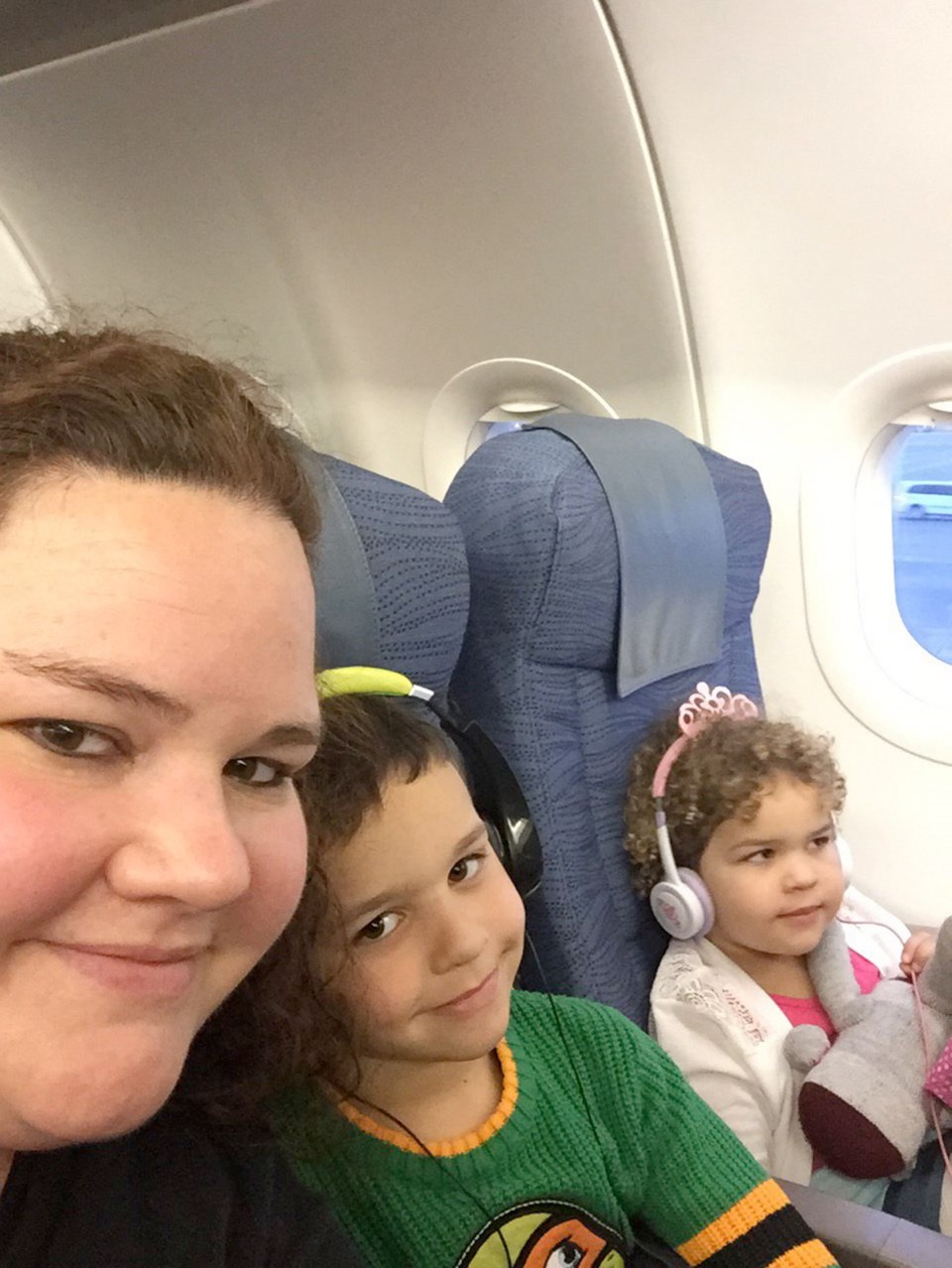A Nanaimo mother is begging the federal government for a swift overhaul of Canada’s no-fly list program so that her four-year-old can travel without being flagged for additional screening.
Amber Cammish said her family faces constant delays at airports because her daughter, Alia Mohamed, has a name similar to someone on the no-fly list.
“It’s humiliating at the airport. It’s degrading and it’s dehumanizing to know you are being pulled aside,” she said.
Cammish was among dozens of parents who gathered on Parliament Hill in Ottawa on Monday, pushing for a system that would allow people to distinguish themselves from those who are a legitimate security risk.
Since Alia was born, the family has never been able to check in online and they’ve been pulled aside for additional screening four times this year, said Cammish, a member of a group called No Fly List Kids, which includes about 100 families in similar predicaments. Cammish always carries Alia’s birth certificate and passport, even when flying domestically.
“This is bad data and poor security,” Cammish said. “We’re hindering security officials by pulling aside a four-year-old to check them. We’re wasting time and resources.”
The no-fly list relies on names rather than such things as country of origin or passport numbers, which means people whose names match those on the list will be mistakenly flagged for screening.
“The Canadian government will not let you know if your name matches someone on this list because of national security,” said Cammish.
She found out that her daughter’s name was a match when an airline employee mistakenly told her.
Last year, Public Safety Minister Ralph Goodale announced the Passenger Protect Inquiries Office to help people with false name matches on aviation-security lists.
However, there are calls for a U.S. system that allows people to apply for an identification number that indicates they are not the person on the no-fly list.
Changes to the screening system, including a redress process, are being considered under the proposed Bill C-59, a major overhaul to Canada’s national security system.
“The proposed reforms would significantly decrease the occurrence of passengers who experience delays at airports as a result of having the same or similar name as an individual on the [Secure Air Travel Act] list,” said Karine Martel, a spokeswoman for Public Safety Canada.
Cammish and other parents fear that overhauls to the no-fly list will be delayed, possibly by years, if lumped in with the omnibus security bill.
No Fly List Kids parents have collected letters from 178 MPs, 17 of them cabinet ministers, who support the creation of a redress system in the 2018 federal budget.
Colin Bennett, a University of Victoria political science professor who studies surveillance and privacy, said the no-fly list has been plagued with false positives since it was introduced.
“My view is that the program is inherently flawed, both in Canada and in the U.S.,” he said.
The Canadian government created the no-fly list system, called the Passenger Protect Program, in 2007 as a response to security concerns in the United States after the Sept. 11, 2001, terrorist attacks.
The original aim of the program was to prohibit people from boarding a plane if they posed “an immediate threat to aviation security” that includes putting at risk the plane or people on board, Bennett said.
When the Harper government passed the contentious C-51 anti-terrorism bill, it included the Secure Air Travel Act, which aimed to prevent terrorists from flying altogether. “In order to legitimately prevent terrorists from getting on airplanes, you have to share that list with an enormous variety of institutions, sometimes around the world,” Bennett said.
This is why a made-in-Canada redress system might not be enough to stop a person from being mistakenly flagged while travelling internationally, he said.
“Once you’re on a list, it’s very difficult to get off. Especially when it’s shrouded in so much secrecy because of national security,” Bennett said.
“It’s a terrible dilemma for these poor parents.”



